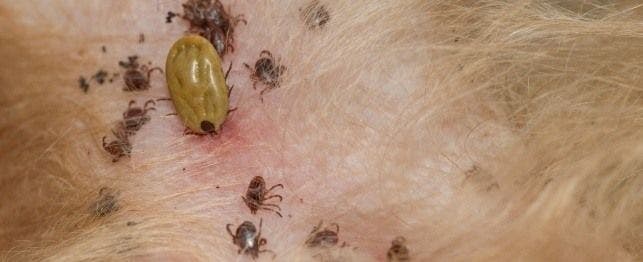
Veterinarian’s “Dirtiest” Dog Jobs
Veterinarian’s “Dirtiest” Dog Jobs
Being a vet isn’t all puppy kisses. If I’m being honest, it involves a huge amount of work that is difficult, dirty, and sometimes just plain disgusting. Nearly every job in a veterinary clinic is tough, from the front desk to the vets themselves, and some jobs are dirtier than others.
When we train new employees and interact with clients and students, we have to be careful. Often, we have to ensure that the sights and smells of a clinic don’t cause them to unexpectedly faint or get sick. Over the years, I’ve picked many owners and students up off the floor when they got a surprise dose of “gross.”
Despite what you might think, injuries aren’t the worst of it. As you can see below, lacerations and traumatic wounds didn’t even make the list of the dirtiest jobs. Most of what you’ll see have to do with foul-smelling bodily fluids…and worse.
Here are 10 of the dirtiest jobs that we see as veterinarians.
Maggots
These are fly larva that feed on necrotic and dying tissue. Sustained skin moisture can cause damage, inflammation, and infection, and make for a favorable environment for maggots. The infestation starts when a single blowfly lays many eggs on decaying, infected or inflamed tissue. The cone-shaped larva uses its specialized mouth parts, which include hooks, to lap up liquids and pierce the skin. A severe infestation can require intense treatment and even amputation to resolve. Cleaning wounds infected with maggots is one of the most disturbing and dirty of jobs.
Warbles
Cuterebra, often call warbles, are large flies whose larvae infest the skin of dogs, rodents, squirrels, rabbits, and cats. After migrating into the skin, the larva will form a breathing hole where pus drains from the skin to the outside. Most cuterebra larvae are found on the head and neck of cats. What looks like a cyst or abscess ends up being a big worm that must be removed. There is something really disturbing about this! It makes your own skin crawl to think about.
Expressing anal glands
One of the smelliest jobs we as veterinary professionals do is express anal glands. These are small scent glands that sit on each side of the rectum. On occasion, they can become large and uncomfortable to dogs, and must be expressed (or squeezed) to relieve the unpleasant sensations. The expression of anal glands involves putting on gloves and squeezing out the foul-smelling liquid. It can be challenging to keep the dog calm and still while ensuring that no fluids get on you. (The oily substance is very difficult to wash out.)
Abscesses
This is a localized pocket of infection under the skin. Sometimes dogs come into the clinic with abscesses that are open and draining, and other times we need to lance and drain the pus. This job is messy and the odor that goes with this is often quite pungent.
Flea infestations
A common problem in spring and summer, fleas are not only uncomfortable for the dog, but a huge pain to treat as well. As you comb and treat the pet to kill the fleas, these pesky parasites are likely to jump off…right onto you.
Tick infestation
The presence and attachment of a tick, a blood-sucking parasite, can be truly horrifying. These nasty little creatures can swell to many times their original size after feeding, taking on the appearance of what one of my staff members calls “a diseased grape.” One tick isn’t too bad to deal with, but pulling off multiple ticks is a dirty job (especially if one ruptures…yuck).
Testing stool samples
The veterinary shorthand for this process is “running fecals,” and it is one of the most common tests performed at veterinary clinics. Owner frequently drop off both normal and abnormal stool samples for testing. It’s not uncommon to receive containers (or even bags) of waste from a sick animal which are so foul in odor and appearance that it can make you queasy.
Vomit and diarrhea
No one likes cleaning up these yucky messes, but every dog lover has to do it sometime. But when you do it day after day, over and over, it gets pretty awful sometimes. Cleaning up vomit and diarrhea is always a dirty job, and if a really sick dog comes in and you don’t have a strong stomach that day, it can be really disturbing.
Nasty infected ears
You might wonder how bad cleaning an animal’s ears could be. Let me tell you: it’s just awful. They can fill with a tarry black substance that’s difficult to remove and the odor can be absolutely foul.
Cleaning cages
You never know what a dog will leave you in a cage. Many hospitalized dogs are sick and may leave all kinds of messes to tend to after a long night. Cleaning up vomit, diarrhea, urine, and drainage from infected wounds are dirty jobs indeed.
Did this list gross you out? I understand if it did; I really meant it when I said that vets and their staff deal with a lot of unpleasant things during the course of a day. I don’t talk about this to discourage people from working in a veterinary clinic; rather, I hope that telling you about these disgusting jobs can help you understand that this is the reality of such a job. But no matter how gross or hard it is, helping animals and saving lives makes it all worth it.